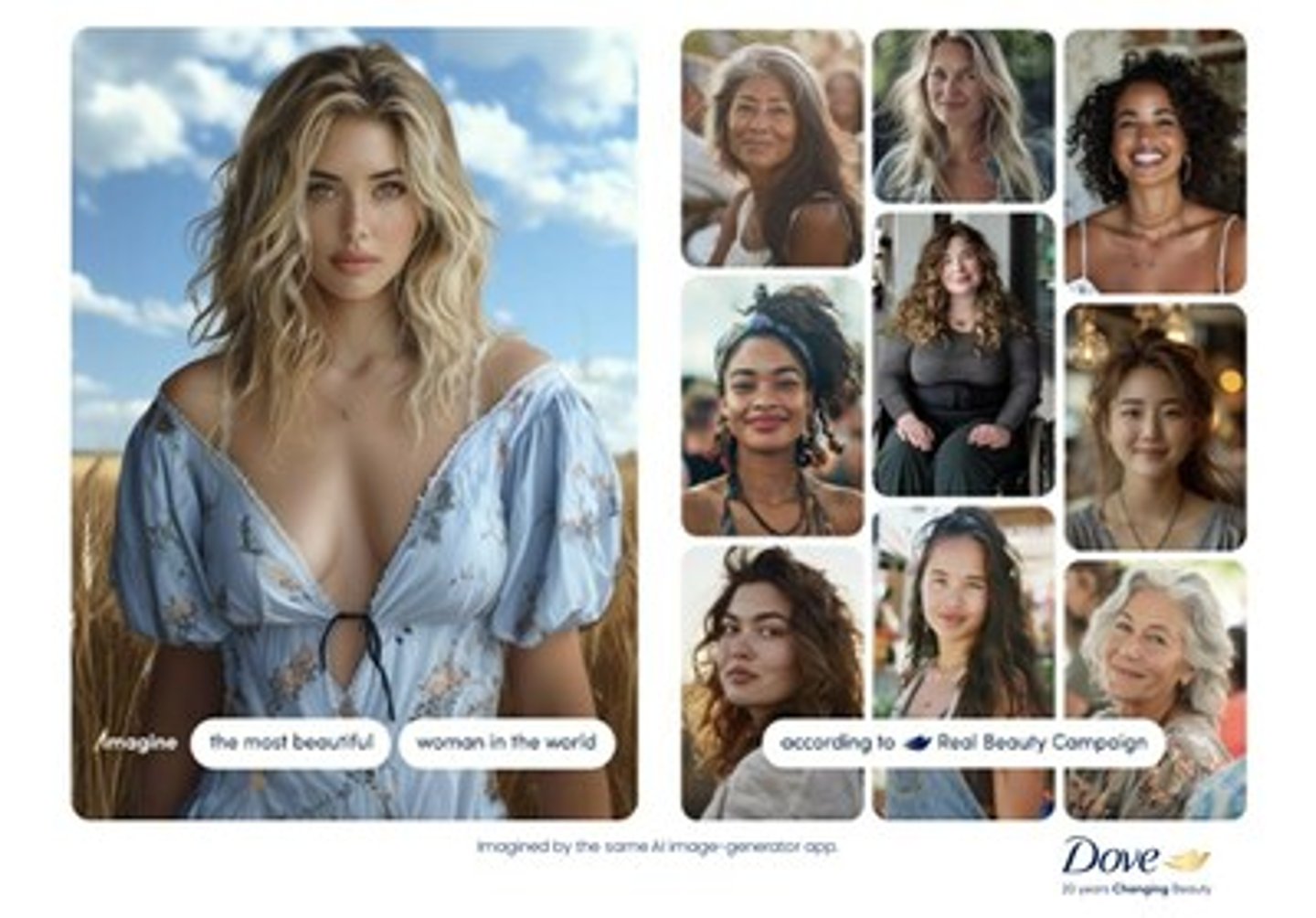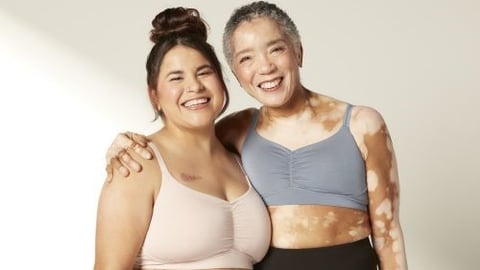How AI Is Affecting Beauty Brand Marketing
In the AI era, when many things are possible in terms of creating content, one brand is sticking to a core value of true representation. Dove, which kicked off a campaign 20 years ago focused on real beauty, has committed to never using AI in place of real people in its advertising.
Claiming to be the first beauty brand to share that pledge, the Unilever division is going a step beyond its own organization. The company developed what it calls “Real Beauty Prompt Guidelines,” mapping out how to create images that are more representative of real beauty on the most popular Generative AI programs. Anyone can use those guidelines as they explore the technology, according to Dove.
[RELATED: 4 Reasons for Retailers to Embrace GenAI]
“At Dove, we seek a future in which women get to decide and declare what real beauty looks like – not algorithms. As we navigate the opportunities and challenges that come with new and emerging technology, we remain committed to protect, celebrate, and champion Real Beauty. Pledging to never use AI in our communications is just one step. We will not stop until beauty is a source of happiness, not anxiety, for every woman and girl,” explained Alessandro Manfredi, chief marketing officer.
Meanwhile, Dove’s new ad campaign addresses the impact on of technology on beauty. The campaign is supported by celebrities including singer and actor Reba McEntire, TV host and actor Drew Barrymore, actor Beanie Feldstein and actor and producer Marsai Martin, among others.
As it rolls out its latest campaign and affirms its commitment to authentic depictions, Dove is releasing the results of a new study on the state of beauty. According to its research, some aspects of beauty and acceptance remain aspirational; for example, one in three U.S. women said would give up a year of their life to achieve an ideal look or body. The study shows that though beauty ideals have become more inclusive in recent years, two in three women believe that today’s women are expected to be more physically attractive than their mother’s generation and 9 in 10 report that have been exposed to “harmful” beauty content online. A third of respondents said that they feel pressure to alter their appearance due to what they see online, even when they know it is AI generated.
Dr. Phillippa Diedrichs, a research psychologist at the Centre of Appearance Research at the University of West England, commented on the implications of the study. “Despite 20 years of work to broaden definitions of beauty, women feel less confident in their own beauty than they did a decade ago,” she said. “Representation is more important than ever. As AI technology continues to evolve, it is becoming increasingly difficult to distinguish between what is real beauty and what is manufactured by AI.”
Another observer, however, said that technology is already changing marketing content and some are okay with that. "The only issue is that as the younger generation becomes very comfortable with AI and does not consider AI-generated content as fake, Dove might get quite limited in its appeal,” declared Arun Kumar, a marketing expert and author of the book, The Data Deluge: Making Marketing Work for Brands and People.
Other beauty brands and companies are, if not embracing AI for models, leaning into its use in various aspects of their business. Last year, The Estée Lauder Cos. Inc. introduced a Voice-Enabled Makeup Assistant (VMA), an AI-powered mobile app to help visually impaired users more easily and confidently apply makeup. Also in 2023, that company teamed up with Google Cloud to pioneer the use of GenAI across its brand sites as a way to better understand consumer sentiment, inform R&D efforts and create relevant digital experiences.
In February, L'Oréal CEO Nicolas Hieronimus spoke at the Consumer Technology Association’s CES show, talking about the role that accessible and inclusive beauty tech can play in driving positive impacts on individuals and communities. He cited AI-powered mobile apps that provide skincare guidance to augmented reality make-up try-ons.
"Beauty is a timeless pursuit and technology adds to its enjoyment while unlocking a world of possibilities," Hieronimus declared. "The first wave of beauty tech changed how people discover, evaluate and buy beauty products. More recently, we've seen how it can better serve the underserved, by democratizing skin health and increasing access to self-expression through innovations like HAPTA for people with limited arm mobility. This is just the beginning. L'Oréal envisions a future where no one feels left out by beauty trends, because they will have the power to create their own trends – whenever, wherever – with products and tools inspired by their own stories, experiences and identity."
As these different approaches in the beauty sector show, AI is the latest area in which brands use their own perspective and mission in their product development and consumer marketing.
Want to learn more about this trending industry topic? The top retailers and solution providers in grocery will be talking about all of these innovations and so much more at Progressive Grocer's annual GroceryTech event in Dallas on June 5-7. Click here for more information and to register now.






